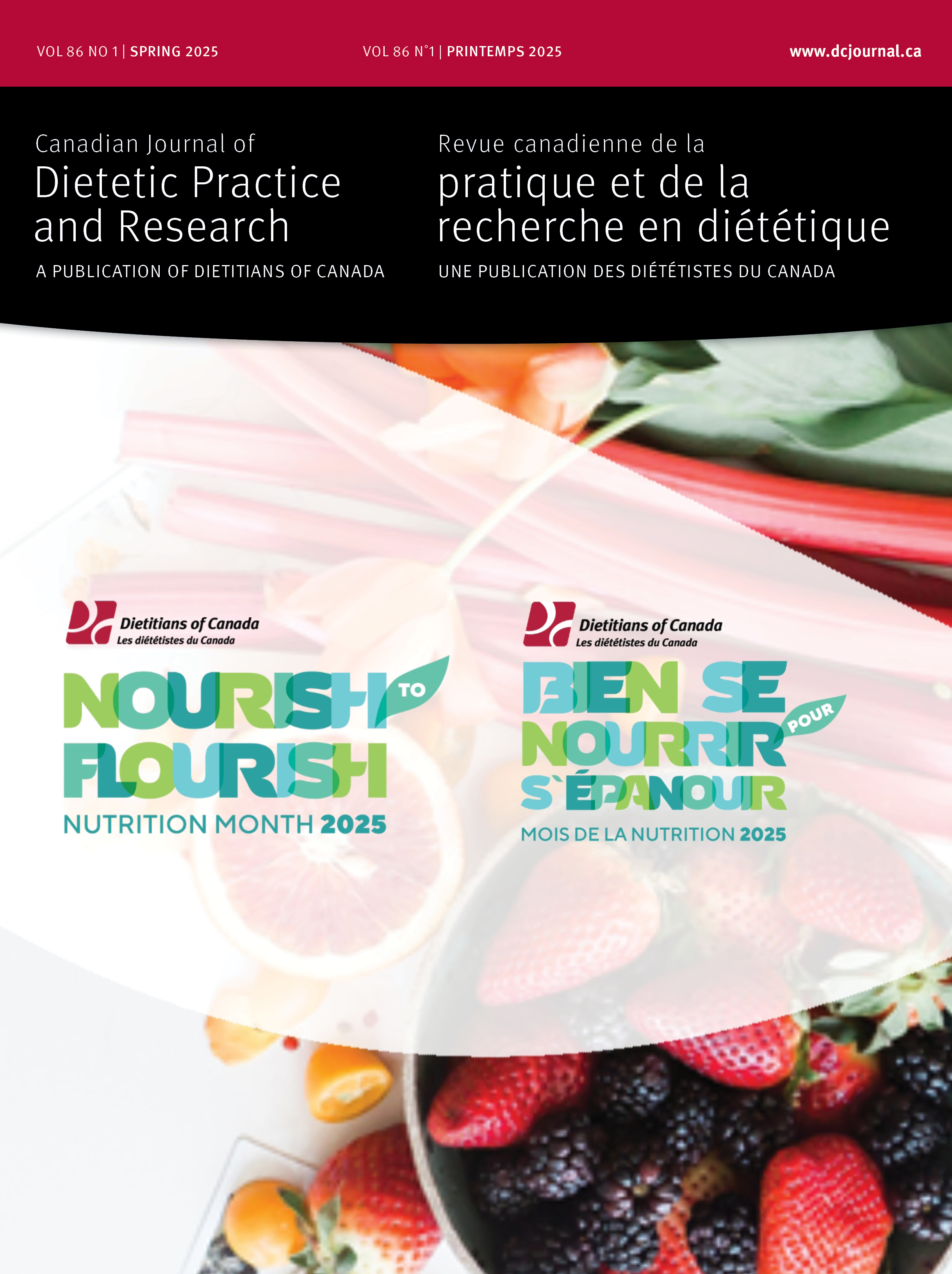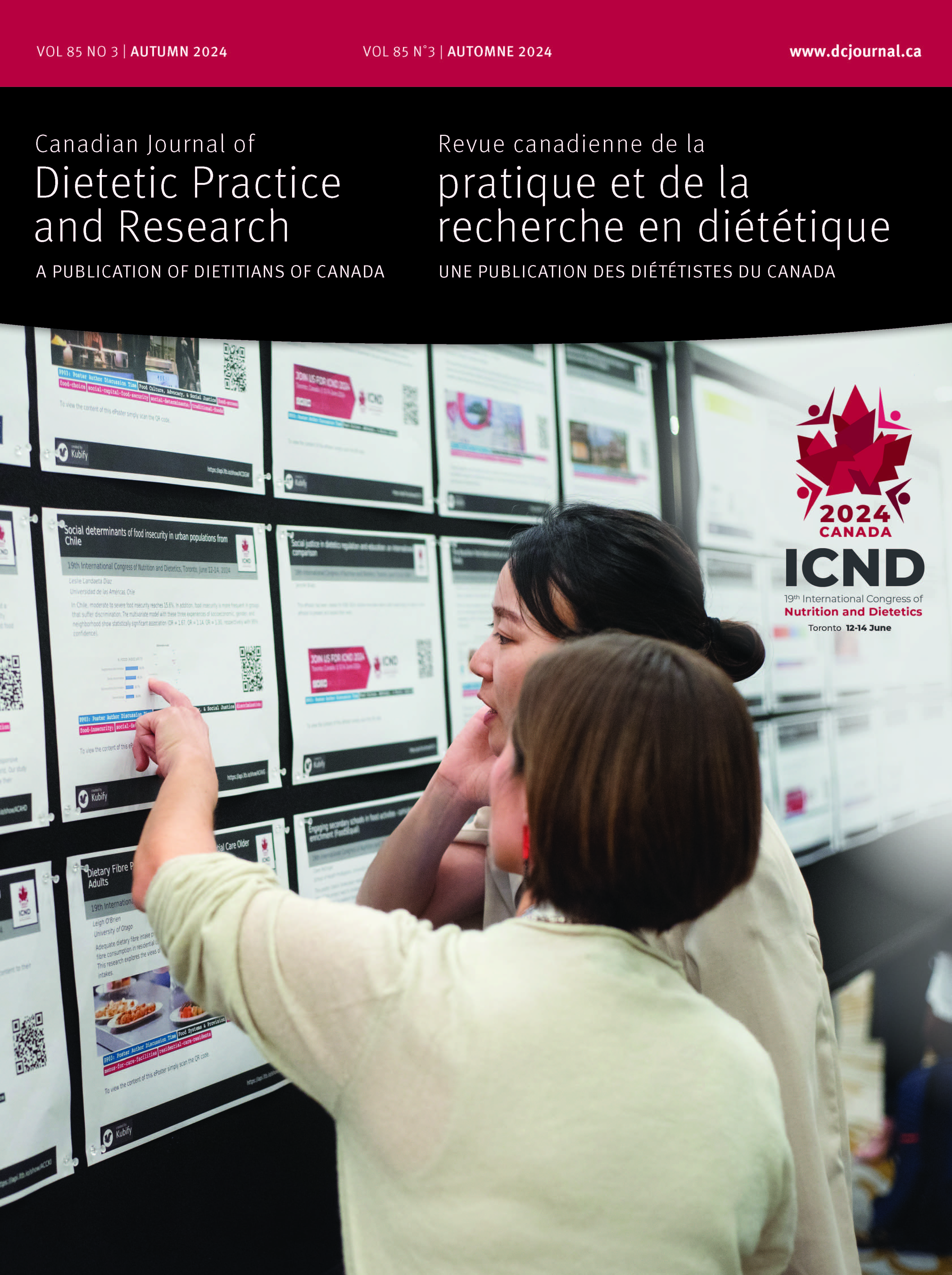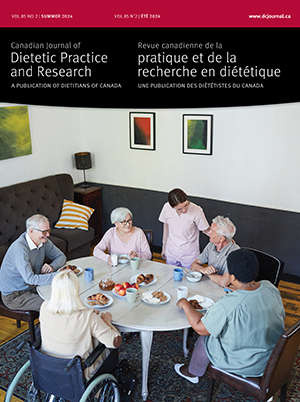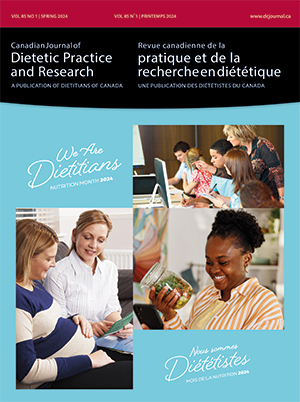Volume 86 • Number 1 • March 2025
Editor’s Message
Original Research
Purpose: This study examined how postpartum mothers experience social media within the context of mothering and their postpartum body. Methods: A subsample of 20 mothers (age 23–42) of infants aged 0–6 months who were exposed to body-focused social media posts as part of an experimental study designed to test social media’s impact on body dissatisfaction took part in semi-structured interviews. We used thematic analysis to identify themes and subthemes generated from the data. Results: We identified three themes in the study: (i) Social media provides a sense of connection with family and friends as a source of support, and connecting with others to gather information related to mothering and child-rearing; (ii) social media led mothers to engage in comparison regarding their bodies, lifestyles, and baby’s development; and: (iii) mothers do not always recognize the influence of social media on their feelings. Conclusions: Findings can help guide prenatal and postpartum interventions and equip healthcare professionals with the information needed to support postpartum mothers in maintaining a positive body image and mothering experience when engaging online.
OPEN ACCESS
Purpose: To assess dietetic students’ anxiety levels before and after a series of simulations and to document students’ perceived sources of anxiety while completing simulation-based learning activities.Methods: A mixed-method convergent pilot study was conducted. Students enrolled in a Nutrition Assessment course that included a series of four simulations were invited to participate. Students completed an online pre-post simulation survey and engaged in individual interviews and a focus group discussion. The questionnaires included demographic questions and the French State-Trait Anxiety Inventory. Nonparametric tests and thematic analysis were used to examine data.Results: Fourteen students participated in the study’s quantitative component and seven in the qualitative component. There was a significant decrease in trait (44.5 ± 13.8 vs 32.0 ± 14.0, P = 0.01) and state (47.0 ± 11.2 vs 33.0 ± 18.0, P = 0.05) anxiety from pre- to post-simulations. Individual factors influencing students’ anxiety levels were stress and self-confidence. External factors influencing students’ anxiety levels were unknown situations, observers, patient profiles, observers’ feedback, preparation level, and academic setting.Conclusions: Our findings suggest that ensuring the educator is not present during simulations, advance preparation, and reassurance that simulations are a learning and not an evaluation activity may be effective pedagogical strategies for dietetic educators to reduce learners’ anxiety and facilitate competency development.
Invited Commentary
Equity, diversity, and inclusion (EDI) is the prevailing framework that has informed efforts in dietetics to redress racism. Although EDI has strengths, it has several weaknesses that ultimately hinder progress on racism in the profession. In this paper, we present racial justice as an alternative framework that, we assert, engenders more meaningful, purposive, and politically critical language, analysis, and action to redress racism and White supremacy.
Perspectives in practice
The Good Food for Learning universal school lunch program is a two-year population health intervention research study in two elementary schools in Saskatoon, Saskatchewan to implement and evaluate a promising model for school food programs (SFPs) in Canada. A survey was administered to understand parent/caregivers’ perceptions of the free, universal school lunch program, participation, and willingness to pay for a future school lunch program (n = 113). A healthy and cost-free lunch were the top two benefits recognized by parents/caregivers. The survey estimated student participation in the program at 77%. For future program planning, universal and cost-free were favoured program aspects to continue. In addition, 68% of parents/caregivers demonstrated a willingness to pay $2.00 per child per lunch. Understanding parental/caregiver expectations and attitudes towards SFPs can inform the planning, decision-making, and sustainability for future models and a national school food policy in Canada.
Review
OPEN ACCESS
The South Asian (SA) diasporic communities in Canada experience a greater burden of diabetes and cardiovascular disease (CVD) compared to white populations. Nutrition interventions often focus on individual behaviours and fail to consider that the social determinants of health (SDH) have a greater impact on chronic disease risk. A narrative review was conducted to identify the SDH in nutrition care interventions for the SA diaspora in Canada. The final analysis included fourteen articles from which SDH were identified and categorized based on the Social Ecological Model (SEM). The study analysis yielded the following needs in dietetic practice based on the SEM: (1) intrapersonal – need for language appropriate services, and representation of cultural foods and non-Western health perspectives in dietary guidelines, (2) interpersonal – understanding family and friends as social supports, (3) community – incorporating peer and community leader influences, (4) institution – importance of faith-based locations as community hubs, and client workplaces as a barrier to attending appointments, and (5) policy – advocacy for transportation and childcare access, adequate and secure income, and equitable care. These findings urge dietitians to move beyond cultural awareness, sensitivity, and competence to practicing cultural safety and humility in their practice, which is integral to providing equitable care.
In this scoping review, “weight-related evidence” is an umbrella for various terms, phrases, and ways in which weight, body size, fatness, and/or obesity present in research and dietetic practice. Canadian Registered Dietitians’ perceptions of, experiences with, and/or knowledge of weight-related evidence in nutrition care was identified and mapped. Implementing JBI scoping review methodology, four databases were searched: (i) CINAHL (EBSCO); (ii) Medline (Ovid); (iii) Embase (Elsevier); and (iv) Scopus (Elsevier). Google and Bing were searched for grey literature. Three JBI-trained independent reviewers completed screening to extraction. Community consultation was conducted using the Delphi Method. Of 2217 results, 67 were included in the review (29 peer-reviewed; 38 grey). Identified frequencies were 67 examples of perception, 54 of experience, and 51 of knowledge. This review identified diverse definitions/perspectives of weight-related evidence, highlighting the benefits of continuing to discuss and explore this topic within and beyond dietetics. Weight-related evidence was identified in nutrition care in various settings, representing nutrition assessment, diagnoses, interventions, monitoring, and evaluation. Focused on dietetic research and practice, this work provides a foundation for future evaluation of dietitian-led intervention fidelity, utility, and effectiveness, using systematic review or other research designs. These Canadian findings can serve as a foundation for a global/international review.
Sample size estimation is a critical aspect of nutrition research methodology, yet it remains frequently overlooked, leading to underpowered studies and potentially inaccurate conclusions. This review addresses this gap by providing comprehensive guidance on how to calculate sample size in nutrition research. Emphasizing the importance of an a priori sample size calculation, the review outlines the key considerations, including the desired levels of significance and power, effect size estimation, and standard deviation assessment. Formulas for determining sample size for various comparisons, including two proportions, two means, three or more groups, and unevenly sized groups, are provided, along with strategies for addressing loss to follow-up. Hypothetical examples illustrate these formulas’ application across different research scenarios, highlighting their practical value in ensuring study robustness. Additionally, the review discusses common pitfalls in sample size estimation, such as misjudging effect size or standard deviation, and emphasizes the need for transparent reporting of sample size calculations to enable accurate interpretation of study findings. This article is a resource for nutrition researchers, offering guidance on conducting appropriate sample size calculations to bolster methodological rigor and study reliability. By embracing the principles outlined herein, researchers can elevate the quality of nutrition research.
Report
Purpose: The purpose of this preliminary study was to explore Saskatchewan Registered Dietitians’ perceived knowledge, comfort, and access to resources in supporting Muslims who choose to fast during Ramadan.Methods: An online anonymous survey was distributed to Saskatchewan dietitians from January 31 to February 22, 2022. Quantitative data analysis was employed using Microsoft Excel.Results: A total of 93 dietitians completed the survey. Most participants understood that fasting involved abstaining from food and drink (90%, 80/90). Further, participants (71%, 65/92) reported they had never provided care during Ramadan to fasting Muslims, and some (55%, 48/88) felt they did not have access to nutrition guidelines to help Muslims choosing to fast during Ramadan. Yet, 97% (85/88) of participants believe understanding Ramadan is important to providing culturally safe care.Conclusion: Few registered dietitians in Saskatchewan had knowledge regarding Ramadan fasting practices. Some Saskatchewan dietitians may feel uncomfortable due to the limited experience reported providing care to Muslims during Ramadan. Future research should further investigate Canadian dietitians’ knowledge, attitude, and practices providing culturally safe care to Muslims during Ramadan.









